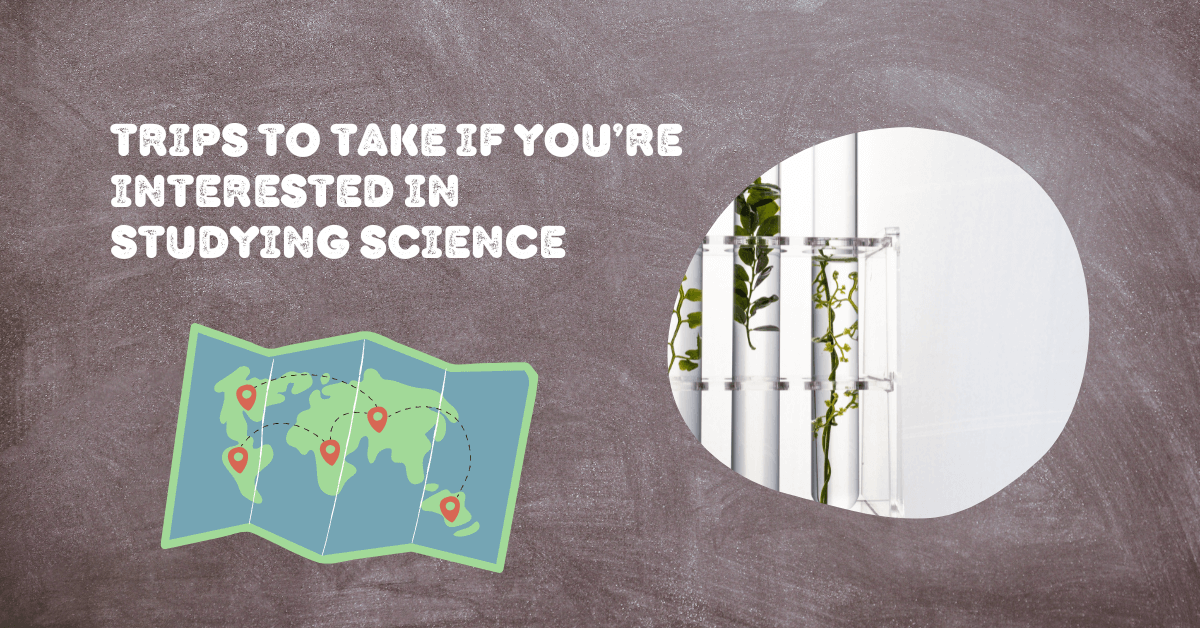Trips to Take if You’re Interested in Studying Science
 For those with a passion for science and an insatiable curiosity about the natural world, turning travel experiences into scientific explorations can be a thrilling adventure.From geological expeditions to marine studies and star-gazing retreats, here are three trip ideas that merge the love for travel and science.
For those with a passion for science and an insatiable curiosity about the natural world, turning travel experiences into scientific explorations can be a thrilling adventure.From geological expeditions to marine studies and star-gazing retreats, here are three trip ideas that merge the love for travel and science.
Go on a Geological Exploration
A geological exploration can be a captivating way to witness the world’s natural history. Traveling to places with unique geological features can offer first-hand learning experiences that a classroom environment may not provide. Think of visiting the Grand Canyon in the USA to observe the Earth’s stratification, or Iceland to witness the tectonic rift between the North American and Eurasian plates. Exploring the Ring of Fire through countries like Japan, New Zealand, and Canada could also provide insights into seismic activities and volcanic landscapes. These explorations offer a chance to understand our planet’s dynamic nature and can ignite a passion for earth sciences.
Visit a Marine Ecosystem
Studying marine biology or simply having an interest in underwater life can be a compelling reason to visit a marine ecosystem. Snorkeling or scuba diving provides a window to the vibrant underwater world teeming with diverse flora and fauna. However, remember: You should keep to yourself and not touch the animals while snorkeling. The Great Barrier Reef in Australia, the Galapagos Islands, and the coral reefs off the coast of Belize are examples of places with thriving marine ecosystems. Observing these complex underwater systems can provide invaluable lessons about biodiversity, marine conservation, and the intricate relationships between different marine species.
Plan an Astronomy Trip
For those drawn toward the mysteries of the universe, an astronomy trip can be a truly enchanting experience. Places with low light pollution offer an unobstructed view of the cosmos, providing an opportunity to marvel at the galaxies, stars, and planets. Consider a trip to the Atacama Desert in Chile, one of the best stargazing spots in the world, or a visit to Mauna Kea in Hawaii, which is home to some of the most advanced astronomical observatories. For a more Northern experience, a trip to the Yukon in Canada during winter could offer a chance to observe the spectacular Northern Lights. Science is not just a subject confined to textbooks and laboratories. It’s an ongoing exploration of the world and the universe. With a curious mindset, every trip can be transformed into an opportunity for learning and discovery.
Embrace geological adventures to unearth the planet’s past. Dive into marine ecosystems to appreciate the vibrant and complex life beneath the waves. Look up and plan an astronomy trip to explore the celestial wonders of the universe. So, for all science enthusiasts out there, remember that the world is your laboratory, and each journey is a step closer to unraveling the mysteries of science.
Did you enjoy this article? Check out: What Business Management Students Should Be Doing to Enhance Their Education

